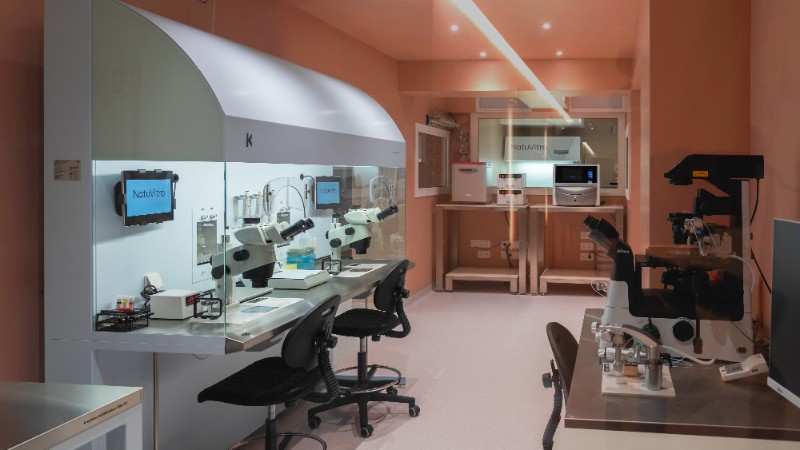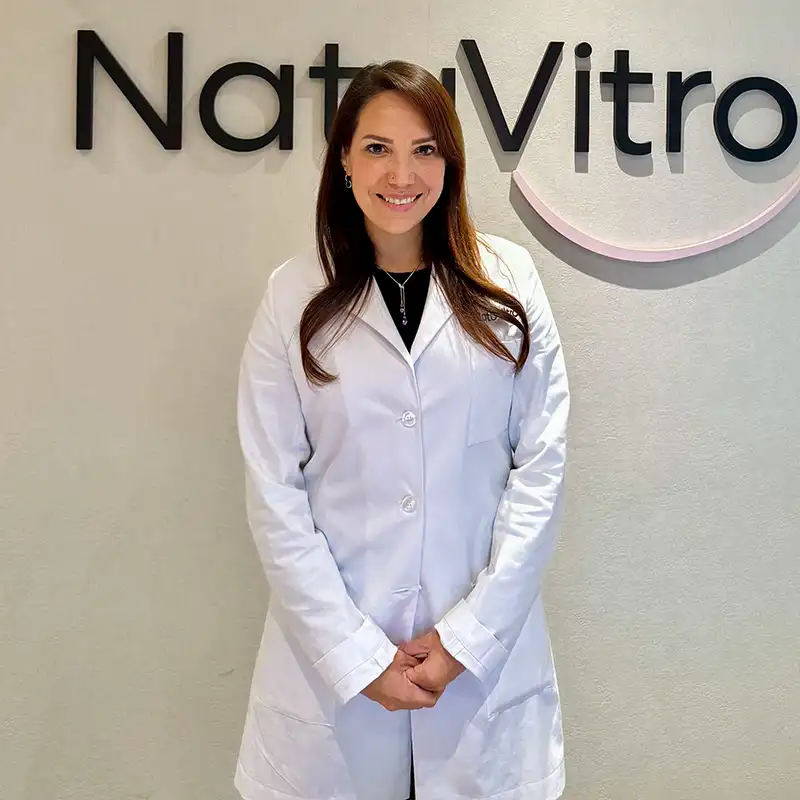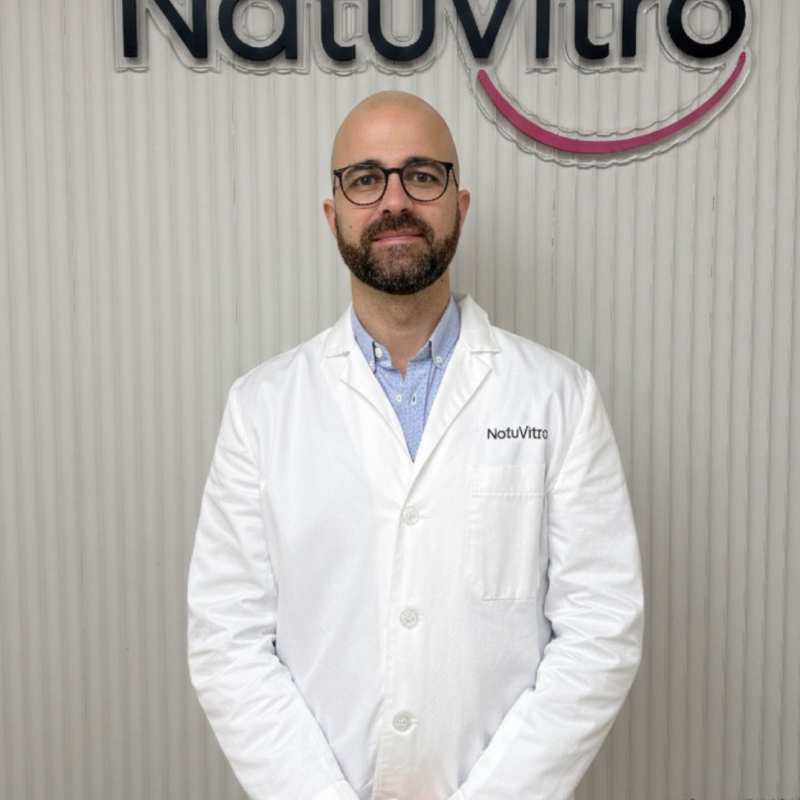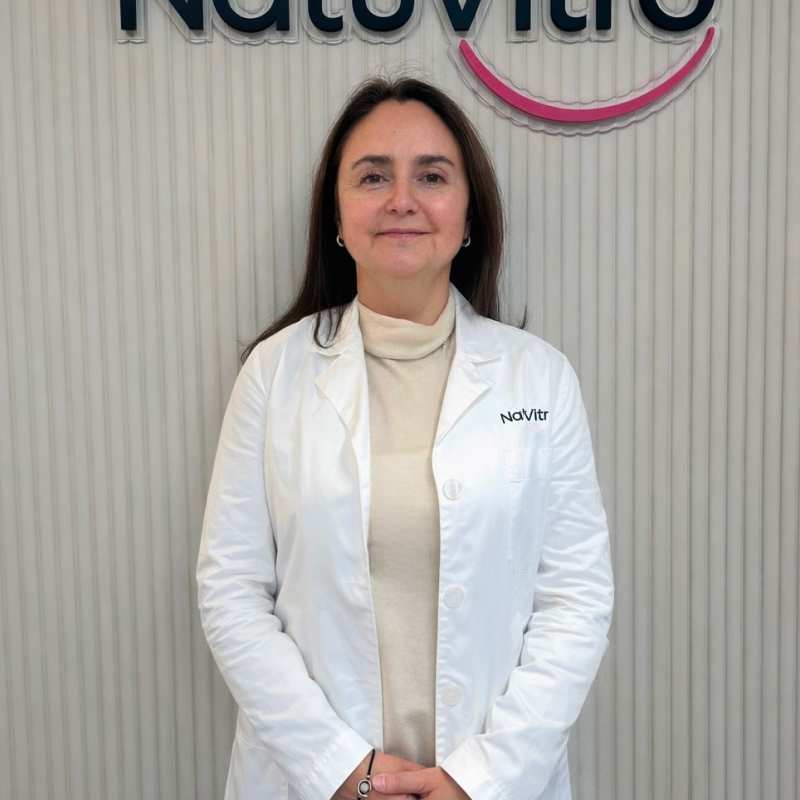
Introduction: Importance of Egg Quality in IVF
In the realm of In Vitro Fertilization (IVF), the quality of a woman's eggs is a pivotal factor in determining the likelihood of successful conception and healthy pregnancy. Egg quality refers to the capacity of an egg to be fertilized and subsequently develop into a viable embryo. It plays a critical role in the IVF process, influencing not just the chances of fertilization but also the quality of the embryos and the likelihood of a successful implantation and full-term pregnancy.
Understanding the nuances of egg quality is essential for both medical professionals and patients undergoing IVF. It is a complex interplay of various factors, including the genetic integrity of the eggs, their maturity, and their overall health, which can be influenced by age, lifestyle, and environmental factors. High-quality eggs have a higher chromosomal normalcy rate, which is crucial for healthy embryo development.
The significance of egg quality in IVF cannot be overstated. It is a key determinant in the effectiveness of the IVF treatment, dictating the potential for achieving pregnancy. Poor egg quality, on the other hand, can lead to challenges such as lower fertilization rates, poor embryo development, higher rates of miscarriage, and lower overall success rates of IVF cycles. Therefore, evaluating and understanding egg quality becomes a fundamental step in the journey towards successful IVF treatment and the dream of parenthood.
Understanding Egg Quality
Egg quality is a term that encompasses various aspects of an egg's health and viability, notably its genetic integrity and capability to develop into a healthy embryo. The quality of an egg is pivotal in fertility and significantly impacts the success rates of IVF treatments.
Several key factors influence egg quality:
Age: One of the most critical factors affecting egg quality is the age of the woman. As women age, particularly after 35, the quality of their eggs often declines. This decline is primarily due to a decrease in mitochondrial function and an increase in chromosomal abnormalities, which can lead to reduced fertility and higher risks of congenital anomalies.
Lifestyle Factors: Lifestyle choices can also have a significant impact on egg quality. Factors such as smoking, excessive alcohol consumption, poor diet, and high stress levels can negatively affect the health of the eggs. Conversely, maintaining a healthy lifestyle with a balanced diet, regular exercise, and stress management can help preserve egg quality.
Genetic Factors: The genetic makeup of an individual can influence egg quality. Some women may have genetic predispositions that affect their egg reserves and quality.
Understanding egg quality is crucial in the context of IVF, as it directly impacts the chances of successful fertilization and healthy embryo development. By recognizing the factors that affect egg quality, steps can be taken to optimize it, thereby increasing the likelihood of successful IVF outcomes.
Evaluating Egg Quality
The assessment of egg quality is a fundamental aspect of the IVF process, providing crucial information for predicting the likelihood of successful treatment. Medical professionals employ several techniques to evaluate the health and viability of eggs.
Ovarian Reserve Tests: These tests are designed to estimate the quantity and quality of a woman's remaining eggs. The most common assessments include the Anti-Müllerian Hormone (AMH) test, which measures the level of AMH in the blood to give an indication of the number of remaining eggs, and the Follicle Stimulating Hormone (FSH) test, which measures the level of FSH on day 3 of the menstrual cycle. Elevated FSH levels can be a sign of diminished ovarian reserve and potentially lower egg quality.
Antral Follicle Count (AFC): This ultrasound test counts the visible follicles in the ovaries. A higher number of antral follicles usually indicates a better ovarian reserve and potentially higher egg quality.
Advanced Imaging Technologies: Time-lapse imaging and other advanced technologies in IVF clinics allow for close monitoring of the eggs and early-stage embryos. This helps in selecting the best quality eggs for fertilization and can provide insights into their developmental potential.
These evaluations do not measure egg quality directly but offer valuable indirect indicators. They assist fertility specialists in making informed decisions about the most effective treatment protocols, including the selection of eggs for IVF procedures. Understanding the quality of eggs is key to optimizing IVF strategies and improving the chances of a successful pregnancy.
Egg Quality and IVF Outcomes
The direct correlation between egg quality and the success rates of IVF treatments is a critical aspect of reproductive medicine. High-quality eggs are paramount for achieving successful fertilization, embryo development, and ultimately, a successful pregnancy and birth.
Impact on Fertilization and Embryo Quality: The quality of an egg significantly influences its ability to be fertilized. Once fertilized, the quality continues to play a role in the embryo's development. High-quality eggs are more likely to develop into healthy embryos with the correct chromosomal number, thereby increasing the chances of a successful implantation and pregnancy.
Challenges with Poor Egg Quality: Eggs of lower quality, which may be more prevalent in older women or those with certain medical conditions, can lead to a range of IVF challenges. These include lower fertilization rates, poor embryo development, and increased likelihood of chromosomal abnormalities. Consequently, this can result in lower implantation rates, higher miscarriage rates, and a decreased chance of achieving a viable, full-term pregnancy.
The significance of egg quality in IVF emphasizes the need for thorough pre-treatment evaluation and tailored approaches to fertility treatment. By understanding the quality of eggs available, fertility specialists can make better-informed decisions regarding treatment options, such as the number of eggs to retrieve and fertilize, the potential need for donor eggs, and the most suitable embryo transfer strategies. This understanding is key to maximizing the potential for successful outcomes in IVF and helping individuals and couples achieve their family-building goals.
Improving Egg Quality
Improving egg quality is a vital aspect of enhancing fertility, particularly for those undergoing IVF. While certain factors influencing egg quality, like age, cannot be modified, there are several lifestyle changes and medical interventions that can help improve the health and viability of eggs.
Lifestyle Modifications: A healthy lifestyle can significantly impact egg quality. This includes maintaining a balanced diet rich in antioxidants, which can help protect eggs from oxidative stress. Regular physical activity and maintaining a healthy weight are also important, as obesity has been linked to lower egg quality. Reducing stress through mindfulness practices, yoga, or meditation can positively affect overall reproductive health.
Avoiding Negative Influences: It’s crucial to avoid smoking, excessive alcohol consumption, and exposure to environmental toxins, all of which can detrimentally affect egg quality. Limiting caffeine intake and ensuring adequate sleep are also beneficial practices.
Medical Treatments and Supplements: Certain fertility-enhancing medications and supplements may improve egg quality. For instance, Coenzyme Q10 (CoQ10) has been shown to improve mitochondrial function in eggs, and DHEA supplements may be beneficial for women with diminished ovarian reserve. However, it's essential to consult with a healthcare provider before starting any medication or supplement.
These strategies can optimize egg quality, potentially increasing the chances of successful fertilization and healthy embryo development during IVF. While not all factors affecting egg quality are within control, taking proactive steps in areas that are can make a significant difference in fertility outcomes.
Egg Quality in Older Women
Age is a pivotal factor affecting egg quality, especially pertinent for women undergoing IVF. As women age, particularly beyond 35, the quality of their eggs tends to decline, impacting fertility and the success rates of IVF treatments.
Age-Related Decline: The decline in egg quality with age is mainly due to a decrease in the number of available eggs and an increase in chromosomal abnormalities. This natural decline can lead to reduced chances of successful fertilization, increased risk of miscarriage, and higher likelihood of chromosomal disorders in the offspring. The quality of eggs diminishes significantly after the age of 40, making it a crucial factor for older women considering IVF.
IVF Challenges for Older Women: For women in their 40s, the decreased egg quality poses specific challenges in IVF treatments. These include a lower response to ovarian stimulation, fewer eggs retrieved during IVF cycles, and lower rates of embryo implantation. Additionally, the risk of genetic abnormalities in embryos increases with maternal age.
Alternatives for Older Women: In cases where egg quality is a significant concern, options such as using donor eggs become a viable alternative. Egg donation can bypass the issues related to diminished egg quality and increase the chances of a successful pregnancy.
Recognizing the implications of age on egg quality is crucial for older women considering IVF. It allows them and their fertility specialists to make informed decisions about their treatment options, increasing their chances of a successful pregnancy. This might include adjusting IVF protocols or considering alternatives like egg donation.
The Future of Egg Quality Assessment
Advancements in reproductive technology and ongoing research are continually shaping the future of egg quality assessment, offering hope and enhanced opportunities for women undergoing IVF treatments.
Emerging Technologies: Cutting-edge developments in reproductive medicine, such as advanced imaging techniques and genetic testing, are improving the ability to assess and select high-quality eggs. Innovations like AI-driven analysis of embryos and non-invasive methods to evaluate the metabolic health of eggs are on the horizon, aiming to increase the precision and success rates of IVF.
Genetic Testing and Screening: Preimplantation genetic testing (PGT) is becoming more sophisticated, allowing for the screening of embryos for genetic disorders and chromosomal normality. This not only aids in assessing the quality of embryos derived from the eggs but also helps in selecting the healthiest embryos for transfer, thus improving pregnancy outcomes.
Personalized Medicine: Research is focusing on individualized approaches to fertility treatment, considering the unique genetic and physiological factors that affect egg quality. This personalization of care could lead to more tailored treatments to optimize egg quality for each patient.
Improving Egg Health: Ongoing research is exploring potential treatments to rejuvenate or improve the quality of eggs, particularly for older women. Studies into mitochondrial health, hormonal treatments, and lifestyle interventions hold promise for enhancing egg quality.
The future of egg quality assessment in IVF is geared towards more precise, personalized, and successful fertility treatments. By leveraging new technologies and scientific understanding, the goal is to offer improved chances of conception and healthy pregnancies, especially for those facing challenges with egg quality.
Conclusion: Empowering Patients with Knowledge
The journey of IVF, deeply intertwined with the complexities of egg quality, underscores the importance of patient empowerment through knowledge and understanding. As reproductive science advances, equipping patients with comprehensive insights about egg quality becomes essential for informed decision-making and setting realistic expectations.
Importance of Patient Education: Educating patients about the nuances of egg quality, how it affects fertility, and the IVF process is vital. Understanding these aspects enables patients to actively participate in their treatment plans and fosters a collaborative relationship with their healthcare providers.
Realistic Expectations: With a clear grasp of how egg quality impacts IVF outcomes, patients can have more realistic expectations regarding treatment success rates and potential challenges. This understanding is particularly crucial for older women or those with known fertility issues.
Navigating Treatment Options: Armed with knowledge, patients can better navigate their treatment options, whether that involves proceeding with IVF using their eggs, considering donor eggs, or exploring other fertility treatments.
Support and Resources: Encouraging patients to utilize available resources, such as counseling, support groups, or educational materials, can provide additional support and information, helping them to navigate the emotional and physical aspects of IVF.
In conclusion, empowering patients with a thorough understanding of egg quality and its significance in IVF paves the way for more informed, confident, and hopeful journeys towards parenthood. As the field of reproductive medicine continues to evolve, patient education and support remain key pillars in achieving successful IVF outcomes.
Our experts are ready to examine your case history, clarify your choices, and address every question you have.
Don't wait to make informed decisions – your personalized guidance awaits!
- Spain (España)+34
- France (La France)+33
- Italy (Italia)+39
- United Kingdom+44
- United States+1
- Belgium (België)+32
- Switzerland (Schweiz/Suisse)+41
- Germany (Deutschland)+49
- Netherlands (Nederland)+31
- Afghanistan (افغانستان)+93
- Albania (Shqipëri)+355
- Algeria (الجزائر)+213
- American Samoa+1
- Andorra+376
- Angola+244
- Anguilla+1
- Antigua and Barbuda+1
- Argentina+54
- Armenia (Հայաստան)+374
- Aruba+297
- Ascension Island+247
- Australia+61
- Austria (Österreich)+43
- Azerbaijan (Azərbaycan)+994
- Bahamas+1
- Bahrain (البحرين)+973
- Bangladesh (বাংলাদেশ)+880
- Barbados+1
- Belarus (Беларусь)+375
- Belize+501
- Benin (Bénin)+229
- Bermuda+1
- Bhutan (འབྲུག)+975
- Bolivia+591
- Bosnia and Herzegovina (Босна и Херцеговина)+387
- Botswana+267
- Brazil (Brasil)+55
- British Indian Ocean Territory+246
- British Virgin Islands+1
- Brunei+673
- Bulgaria (България)+359
- Burkina Faso+226
- Burundi (Uburundi)+257
- Cambodia (កម្ពុជា)+855
- Cameroon (Cameroun)+237
- Canada+1
- Cape Verde (Kabu Verdi)+238
- Caribbean Netherlands+599
- Cayman Islands+1
- Central African Republic (République centrafricaine)+236
- Chad (Tchad)+235
- Chile+56
- China (中国)+86
- Christmas Island+61
- Cocos (Keeling) Islands+61
- Colombia+57
- Comoros (جزر القمر)+269
- Congo (DRC) (Jamhuri ya Kidemokrasia ya Kongo)+243
- Congo (Republic) (Congo-Brazzaville)+242
- Cook Islands+682
- Costa Rica+506
- Côte d’Ivoire+225
- Croatia (Hrvatska)+385
- Cuba+53
- Curaçao+599
- Cyprus (Κύπρος)+357
- Czech Republic (Česká republika)+420
- Denmark (Danmark)+45
- Djibouti+253
- Dominica+1
- Dominican Republic (República Dominicana)+1
- Ecuador+593
- Egypt (مصر)+20
- El Salvador+503
- Equatorial Guinea (Guinea Ecuatorial)+240
- Eritrea+291
- Estonia (Eesti)+372
- Eswatini+268
- Ethiopia+251
- Falkland Islands (Islas Malvinas)+500
- Faroe Islands (Føroyar)+298
- Fiji+679
- Finland (Suomi)+358
- French Guiana (Guyane française)+594
- French Polynesia (Polynésie française)+689
- Gabon+241
- Gambia+220
- Georgia (საქართველო)+995
- Ghana (Gaana)+233
- Gibraltar+350
- Greece (Ελλάδα)+30
- Greenland (Kalaallit Nunaat)+299
- Grenada+1
- Guadeloupe+590
- Guam+1
- Guatemala+502
- Guernsey+44
- Guinea (Guinée)+224
- Guinea-Bissau (Guiné Bissau)+245
- Guyana+592
- Haiti+509
- Honduras+504
- Hong Kong (香港)+852
- Hungary (Magyarország)+36
- Iceland (Ísland)+354
- India (भारत)+91
- Indonesia+62
- Iran (ایران)+98
- Iraq (العراق)+964
- Ireland+353
- Isle of Man+44
- Israel (ישראל)+972
- Italy (Italia)+39
- Jamaica+1
- Japan (日本)+81
- Jersey+44
- Jordan (الأردن)+962
- Kazakhstan (Казахстан)+7
- Kenya+254
- Kiribati+686
- Kosovo+383
- Kuwait (الكويت)+965
- Kyrgyzstan (Кыргызстан)+996
- Laos (ລາວ)+856
- Latvia (Latvija)+371
- Lebanon (لبنان)+961
- Lesotho+266
- Liberia+231
- Libya (ليبيا)+218
- Liechtenstein+423
- Lithuania (Lietuva)+370
- Luxembourg+352
- Macau (澳門)+853
- North Macedonia (Македонија)+389
- Madagascar (Madagasikara)+261
- Malawi+265
- Malaysia+60
- Maldives+960
- Mali+223
- Malta+356
- Marshall Islands+692
- Martinique+596
- Mauritania (موريتانيا)+222
- Mauritius (Moris)+230
- Mayotte+262
- Mexico (México)+52
- Micronesia+691
- Moldova (Republica Moldova)+373
- Monaco+377
- Mongolia (Монгол)+976
- Montenegro (Crna Gora)+382
- Montserrat+1
- Morocco (المغرب)+212
- Mozambique (Moçambique)+258
- Myanmar (Burma) (မြန်မာ)+95
- Namibia (Namibië)+264
- Nauru+674
- Nepal (नेपाल)+977
- New Caledonia (Nouvelle-Calédonie)+687
- New Zealand+64
- Nicaragua+505
- Niger (Nijar)+227
- Nigeria+234
- Niue+683
- Norfolk Island+672
- North Korea (조선 민주주의 인민 공화국)+850
- Northern Mariana Islands+1
- Norway (Norge)+47
- Oman (عُمان)+968
- Pakistan (پاکستان)+92
- Palau+680
- Palestine (فلسطين)+970
- Panama (Panamá)+507
- Papua New Guinea+675
- Paraguay+595
- Peru (Perú)+51
- Philippines+63
- Poland (Polska)+48
- Portugal+351
- Puerto Rico+1
- Qatar (قطر)+974
- Réunion (La Réunion)+262
- Romania (România)+40
- Russia (Россия)+7
- Rwanda+250
- Saint Barthélemy+590
- Saint Helena+290
- Saint Kitts and Nevis+1
- Saint Lucia+1
- Saint Martin (Saint-Martin (partie française))+590
- Saint Pierre and Miquelon (Saint-Pierre-et-Miquelon)+508
- Saint Vincent and the Grenadines+1
- Samoa+685
- San Marino+378
- São Tomé and Príncipe (São Tomé e Príncipe)+239
- Saudi Arabia (المملكة العربية السعودية)+966
- Senegal (Sénégal)+221
- Serbia (Србија)+381
- Seychelles+248
- Sierra Leone+232
- Singapore+65
- Sint Maarten+1
- Slovakia (Slovensko)+421
- Slovenia (Slovenija)+386
- Solomon Islands+677
- Somalia (Soomaaliya)+252
- South Africa+27
- South Korea (대한민국)+82
- South Sudan (جنوب السودان)+211
- Spain (España)+34
- Sri Lanka (ශ්රී ලංකාව)+94
- Sudan (السودان)+249
- Suriname+597
- Svalbard and Jan Mayen+47
- Sweden (Sverige)+46
- Syria (سوريا)+963
- Taiwan (台灣)+886
- Tajikistan+992
- Tanzania+255
- Thailand (ไทย)+66
- Timor-Leste+670
- Togo+228
- Tokelau+690
- Tonga+676
- Trinidad and Tobago+1
- Tunisia (تونس)+216
- Turkey (Türkiye)+90
- Turkmenistan+993
- Turks and Caicos Islands+1
- Tuvalu+688
- U.S. Virgin Islands+1
- Uganda+256
- Ukraine (Україна)+380
- United Arab Emirates (الإمارات العربية المتحدة)+971
- Uruguay+598
- Uzbekistan (Oʻzbekiston)+998
- Vanuatu+678
- Vatican City (Città del Vaticano)+39
- Venezuela+58
- Vietnam (Việt Nam)+84
- Wallis and Futuna (Wallis-et-Futuna)+681
- Western Sahara (الصحراء الغربية)+212
- Yemen (اليمن)+967
- Zambia+260
- Zimbabwe+263
- Åland Islands+358
Visit our clinic
Location
Call us now
Leave a message








